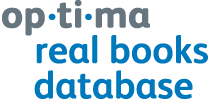Our Ethos

Inclusive
Optima programmes promote a totally inclusive ethos through the unique way that whole class teaching is differentiated. This enables teachers to ensure that all children have their needs met without ever having to be withdrawn for individual or small group work. The impact of Optima’s style of teaching and inclusive practice has been confirmed through the research undertaken in Key Stages 1 and 2. This has demonstrated that, contrary to accepted practice, lower and higher achievers typically make better progress through differentiated whole class teaching rather than one-to-one or small group teaching.

Non-Labelling
Labelling is widespread in the world of education. Optima programmes represent a non-labelling approach to teaching and learning. Current labels that are everywhere are ADHD (Attention Deficit Hyperactive Disorder), autism, autistic spectrum disorders, Aspergers, dyslexia, dyspraxia, dyscalculia, and so on. Whatever the arguments in favour of such epithets and the potential relief that they bring to some of those to whom they are applied and their families, B. F. Skinner, a major figure in psychology believed that they said more about those using the descriptors than their recipients. Optima programmes represent a non-labelling approach to teaching and learning. At no point are labels applied to describe children. Instead the focus is on what children have already been taught and what they need to learn next.







